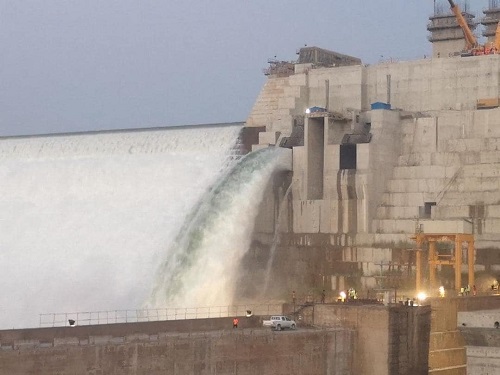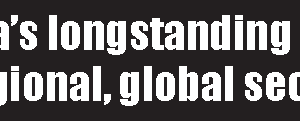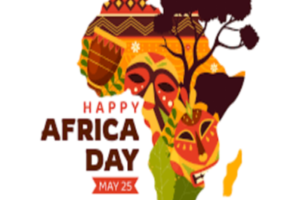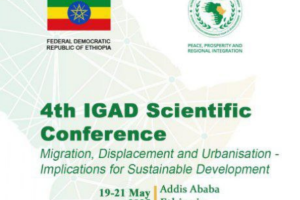
BY ADDISALEM MULAT
AND MENGESHA AMARE
Ethiopia has recurrently declared that no earthly power forces it to stop damming and reiterating it from benefiting out of natural resources. Withstanding the ups and downs, ideological skirmish, conspiracies orchestrated against its positive stride, Ethiopia is making every effort to declare economic, social and political independence as well as making its dreams of becoming Horn star true.
This unreserved effort has been well attested by many international media houses contrary to those which are working in contradiction of Ethiopia’s immense effort solely based on misinformation and falsehood fabrications.
What Kenya’s Nation has put headlined ‘Look ye yonder, Ethiopia is the next frontier of trade, and economic hub,’ is a case in point in this regard.
Ethiopia, Africa’s second most populous country next to Nigeria, suffered military rule, civil war and catastrophic famine over the past half-century. But in recent years, it has emerged as a major power in the Horn of Africa with rapid economic growth and increasing strategic importance under Prime Minister Abiy Ahmed.
In June 2017, Ethiopia topped the emerging markets and developing economies in the “World Bank Global Economic Prospects Report”, which named it as the second fastest-growing economy on annual percentage change in gross domestic product (GDP).
Ethiopia is poised to continue its impressive socioeconomic march. With infrastructure development plans, it’s investing in itself, creating structures, roads and transport systems necessary for growth.
Its economic capacity is undeniable. As reported by the federal government, their Growth and Transformation Plan (GTP I) left them with substantial GDP, infrastructure and social growth. Now implementing their GTP II, Ethiopia is putting in place developmental goals aimed at growing them into “a low middle-income country by 2025”.
Kenyan franchises seem keener to explore the virgin market, going by the activities at Safaricom, Equity Bank and KCB Bank. Their arrival in Ethiopia will certainly boost investment and trading opportunities in the region. This is already discounting American, European and Asian interests in Ethiopia.
It would be an opportunity missed if Kenyan firms didn’t show an interest in Ethiopia. Other than telephony and financial firms, others should also come in, now that Lamu Port is already up and running.
Egypt and Sudan will seek to leverage mounting challenges Ethiopia faces to negotiate a binding pact, but one that won’t happen in the immediate future. It, therefore, remains to be seen if the World Bank’s upturn projections will come to pass. After all, Ethiopia is Africa’s seventh biggest economy.
However, recently, the League of Arab States passed resolution on the GERD as if Ethiopia’s intention to fill the dam’s reservoir over the summer imposes significant harm on the downstream countries and violates the rules of international law and the Declaration of Principles (DoP) signed between the three countries in 2015 governing the cold shoulder to the existing reality on the ground.
Since the construction of the dam is strongly believed to lift the country out of the grip of poverty it finds itself in, Ethiopians in every nook and cranny of the globe have joined hands and helped their motherland dam the Abbay River.
Since the laying of the cornerstone for the construction of the Grand Ethiopian Renaissance Dam (GERD), Ethiopia has been encountering a wide spectrum of challenges. However, it has successfully penetrated all the hurdles and all rounded attempts to hold its efforts back.
Be that as it may, recently Arab League has recently orchestrated a conspiracy against Ethiopia targeting at foiling the second phase of dam filling and making an effort to twist Ethiopia’s arm though they can’t materialize their dream.
Following their partial stance cited in a statement tilting down to Egypt and Sudan, Ethiopia has forwarded a prompt response to the Arab League statement over the dam stating that Ethiopia is dismayed by the “Resolution” of the Executive Council of the League of Arab States on the Grand Ethiopian Renaissance Dam (GERD) issued on 15 June 2021 after its meeting held in Doha, Qatar.
Ethiopia rejects the “Resolution” in its entirety. In fact, this is not the first time the League of Arab States issued a statement regarding its misguided positions on the GERD. As a result of its egregious support to the baseless claims of Egypt and the Sudan regarding the GERD, the League of Arab States has already squandered its opportunity to play a constructive role. It should be abundantly clear that futile attempts like this to internationalize and politicize the GERD will not lead to sustainable regional cooperation in the utilization and management of the Nile.
The League of Arab States should know that utilization of the Nile waters is also an existential matter for Ethiopia. It is about lifting millions of its people out of abject poverty and meeting their energy, water and food security needs. Ethiopia is exercising its legitimate right to use its water resources in full respect for international water laws and the principle of causing no significant harm. Ethiopia firmly believes that it is only through cooperation and dialogue that the water security of any of the Nile Basin states can be achieved. The Nile is a shared resource and not an exclusive property of Egypt and the Sudan.
From the outset, Ethiopia has done everything possible to accommodate the concerns of the two downstream countries in good faith with the hope of ushering in a new era of cooperation among the Nile Basin countries. It is the intransigence of both Egypt and the Sudan, which has made it extremely difficult to make any meaningful progress in the tripartite negotiation. During the South African-led negotiation, it was Egypt and the Sudan that disrupted the negotiations seven times.
Despite the tremendous efforts by the DRC to create the necessary conditions for the resumption of the trilateral negotiations at the meeting held in Kinshasa from 3-5 April 2021, the two countries deliberately undermined the possibility of agreeing on a roadmap for the continuation of the negotiations. Ethiopia agreed to seven of the nine proposals contained in the draft communiqué prepared by the DRC, while Egypt and Sudan rejected the substantive parts of the communiqué. The two countries worked in concert to ensure the failure of the Kinshasa meeting by raising unrelated procedural issues. It is, therefore, regrettable that the League of Arab States decided to take a position on the AU-led negotiation without verifying the facts.
The League of Arab States also seems to be oblivious of the fact that the tripartite negotiation between Ethiopia, Egypt and the Sudan are guided by the Declaration of Principles (DoP), which the leaders of the three countries signed in 2015. The filling of the GERD will be conducted as per the plan in accordance with the DoP and the recommendation of the research group composed of experts from the three countries. Hence, Ethiopia categorically rejects the futile attempt by the League of Arab States to dictate terms regarding the filling of the GERD.
Therefore, the League of Arab States should desist from making such unhelpful statements, which will only serve to antagonize the relations between the three countries and undermine the tripartite negotiation. It should instead encourage Egypt and the Sudan to engage in good faith negotiation to find a win-win solution and lend its full support to the ongoing AU-led process in this regard.
In sum, the very thing that needs to be well comprehended with regard to the GERD is no power under the sky can stop Ethiopia from effectively completing the dam – the life blood of all Ethiopians.
The Ethiopian Herald June 19/2021




